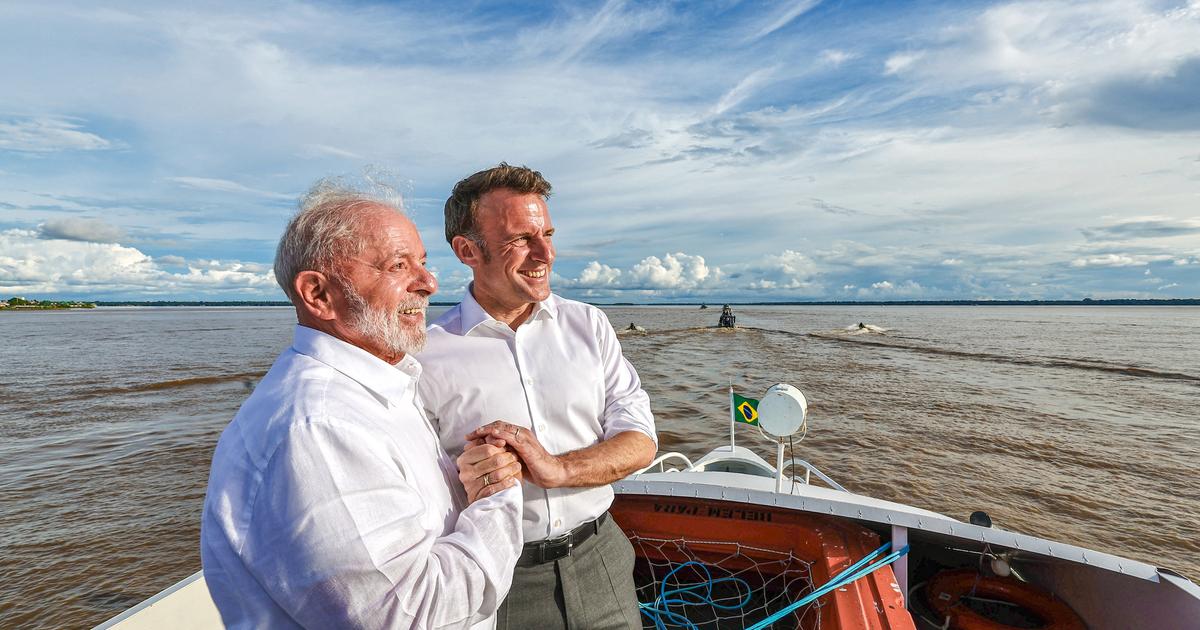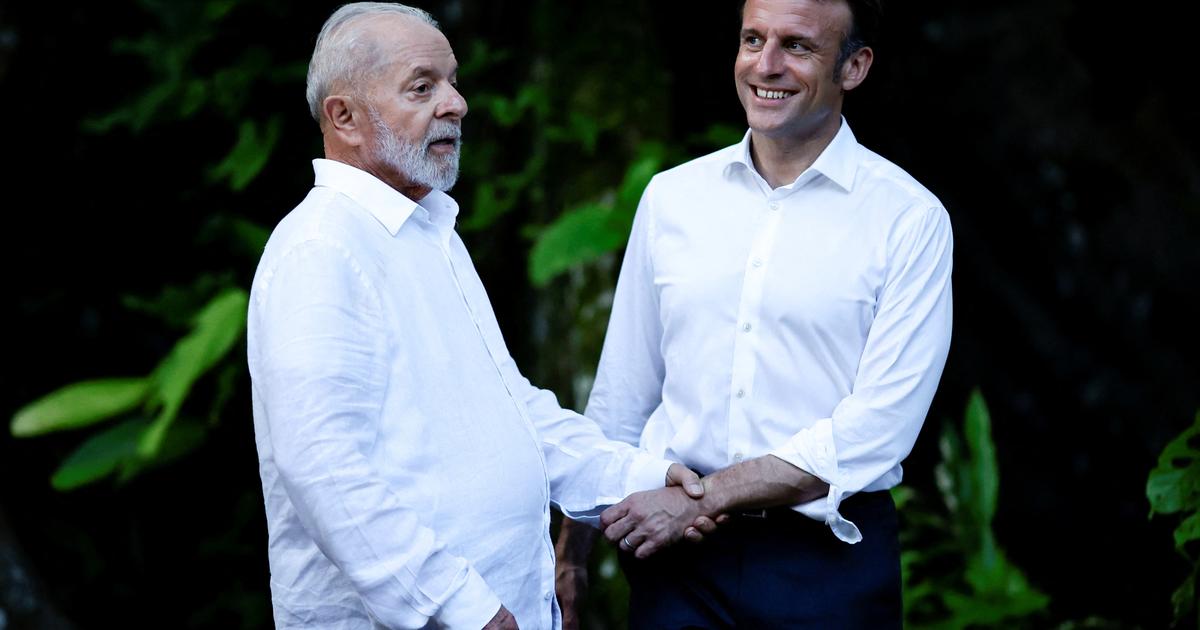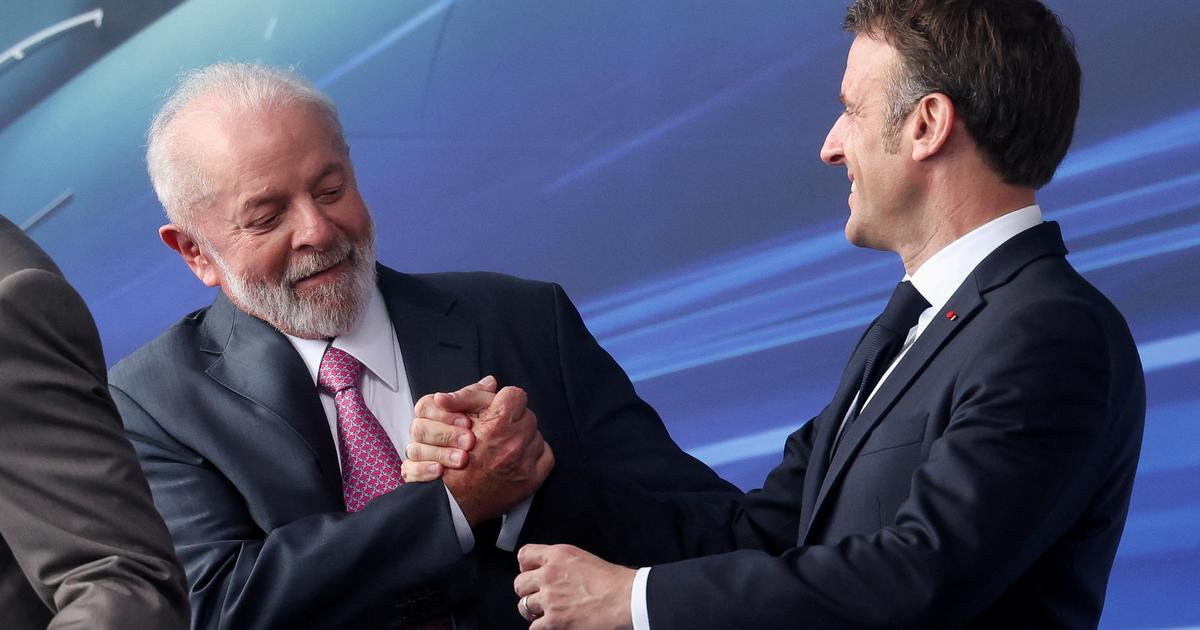A popular saying goes that where there is smoke, there is fire.
But in the case of the Amazon, this is not always an undeniable truth.
Most of the time, the smoke from the fires seen by satellites does not reveal the intricate web of economic relations that has pushed the world's largest tropical forest towards collapse for 50 years.
Scientists warn that if deforestation in the Amazon continues to grow, there will come a time when the forest, so degraded, will lose its ability to regenerate.
If this point of no return is reached, global options to combat climate change will be even more limited.
Deforestation has skyrocketed in the years of the Bolsonaro government.
The destruction rates are the highest in the last 15 years.
It is a thermometer of the economic and social upheavals in the Amazon.
These figures are unequivocal signs of land disputes, the irregular occupation of indigenous territories and the opening of new areas for illegal mining.
Many of us wonder why thousands of hectares of forest are still allowed to be cut down and burned every year in Brazil.
Who are those who encourage the region's rivers to be dynamited and polluted by clandestine miners who advance with violence against indigenous people and environmental defenders?
After all, who are the ones who carry this flame of destruction?
After the first round of elections for president, governors and parliamentarians in Brazil, it is possible to find some answers.
It is clear that this ecocide has broad support among Brazilian voters.
Several of the governors and congressmen with the most votes this October 2 are representatives of what is known as the policy of the ox, the bullet and the Bible.
That is to say: politicians who are in Congress to defend the expansion of agriculture and livestock and the creation of armed militias in the countryside.
All in the name of God, of course.
There is no doubt that the caucus of deputies and senators elected by Bolsonaro's party and his right-wing coalition will seek to impose huge setbacks in environmental protection legislation.
Some issues that are already on the voting agenda of the current Congress —particularly the opening of indigenous lands to mining— should gain support to be approved.
In the dispute for the presidency, Bolsonaro, as the maximum icon of this destructive economy, remains in line with the ideology of the Brazilian military and perpetuates the thought that treats the Amazon as a colony.
This is the current model since the military dictatorship (not to say since the Portuguese reign): the forest as a power for the production of mineral and agricultural raw materials.
The second round between Bolsonaro and former President Lula, who until now leads the voting intentions, will be one of the most important opportunities to debate the path for the development of the Amazon in the coming years.
The image of Brazil is linked to the protection of the Amazon.
In a world that is waking up to the harsh reality of climate change, I dare to say that, for the next president of the country, the Amazon will be the main issue in the international sphere and will occupy a large space in the discussions in Congress and, therefore, in the public debate.
We can group the challenges into three major themes that will make the future government central to the future of the region: (1) transparency in deforestation data and the connection of these indices with the international competitiveness of Brazilian products (2) the fight against environmental crimes and their ramifications in mining and land grabbing in indigenous territories (3) the promotion of an alternative economy in alliance with indigenous peoples and traditional populations.
A possible victory for Lula represents the hope that the Amazon will not reach the point of no return.
In his government program, the former president talks about promoting the bioeconomy, favoring research and development of pharmaceutical and industrialized products in the Amazon.
He also talks about banning all illegal mining activity—the infamous garimpos—within indigenous territories.
These are encouraging signs.
This hope, however, must be met with high doses of pragmatism, taking into account the size and complexity of the Amazon.
The reality is that there is still no alternative of scale or at least as attractive as the production of meat, soybeans, wood and palm oil.
These goods, although they are obtained at the cost of millions of native trees, are in fact the engines of the Amazonian economy.
What we saw in the four years of Bolsonaro's government was a smoke screen.
The main problems of the region have not been addressed.
As president, he chose to attack the existing consensus on the need to stop deforestation and defended only Brazil's sovereignty over the Amazon.
And what is worse, he did it with false information, conspiracy theories and ridiculous data, always accusing those who defend the forest as accomplices of "international interests".
The “war of stories” (as Bolsonaro himself describes it) has brought him political dividends in Congress and among a part of the Brazilian population.
Of the nine Amazonian states, only three —Amazonas, Pará and Maranhão— voted mostly for Lula.
However, Bolsonaro's domestic success isolates Brazil in international forums.
The current president boasts that the world talks about the Amazon without knowing it.
In one of the many pantomimes he has created to support his delirious speeches, he has taken diplomats and embassy attachés to "visit" the Amazon and, there, present them with his version of events, that Brazil is the most preserved country in all the world.
This willingness to indoctrinate foreigners did not materialize in a willingness to debate and take action to stop the wanton destruction.
All efforts to combat illegality were dismantled.
His campaign promise, the demobilization of environmental protection agencies and the lack of guarantees for indigenous rights, has been fulfilled.
One of the biggest challenges will be to recover the capacity to inspect and punish environmental crimes.
The economy of illegalities seems to have crystallized in the Amazon.
Since the murders of Bruno Pereira and Dom Phillips, the dominance of organized crime has become clear, even in remote parts of the region.
Another great challenge is the appearance of commercial barriers to Brazilian products.
The new law of the European Union to curb the importation of goods produced with violations of the environment will be a reality very soon.
It has already been approved by the European Parliament and will now be regulated.
This will require coordination with agricultural producers in monitoring and controlling deforestation.
The difficulties will be enormous, but also the opportunities.
The agribusiness entrepreneurs who supported and continue to support Lula are not few.
The positive agenda for Brazil, therefore, can be immediate.
With Lula, what we can expect is the resumption of the Amazon Fund, one of the most positive initiatives to come out of the climate negotiations.
Led by Norway, several European governments have supported measures to combat deforestation.
The return of international cooperation will undoubtedly be the fastest result.
The environmental agenda continues to place, at least in discourse, the United States, China and Europe on the same side.
Lula can become, along with Gustavo Petro, the greatest spokesman for the protection of the Amazon;
and in fact, protect it by demarcating new indigenous territories and prohibiting illegal mining.
The governments that convey hope in today's world are those that are open to plurality.
Although this is the great fear of Bolsonarism and the military that support it, the recognition of the diversity of cultures and ways of life is already present in the Brazilian Constitution and is the great, the true wealth of the Amazon.
Gustavo Faleiros
is environmental research editor at the Pulitzer Center and co-founder of InfoAmazonia.org




/cloudfront-eu-central-1.images.arcpublishing.com/prisa/AYBDQARVBB2WDG6IFPXHYFIMBM.jpg)


/cloudfront-eu-central-1.images.arcpublishing.com/prisa/UYB5LX3DDBAQTJNDI5EKYZLHEM.jpg)

/cloudfront-eu-central-1.images.arcpublishing.com/prisa/AVTEXOIT25JDRKNTQYQLLZ7NG4.jpg)





